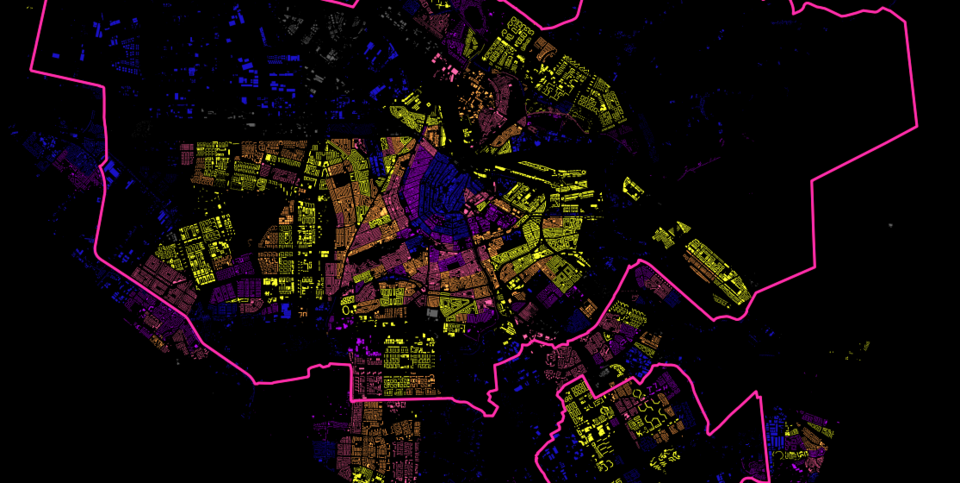Urban Data Science (BSc)
Urban Data Science (UDS) is the fourth of the five modules that, in total, comprise the Smart & Shared Cities minor program, offered by the Leiden-Delft-Erasmus University consortium.
Urban Data Science is a burgeoning interdisciplinary field that merges concepts, methods, and tools from computer science, spatial statistics, and urban planning for the analysis, planning, and management of cities. These methods and tools deal with accessing, collecting, processing, exploring, visualizing, and analyzing data about cities, in which the locational component plays a prominent role. The main learning goal of the UDS module is to introduce students to the variety of new forms of urban data sources (e.g., sensors, Internet of Things devices, social media, Web portals, mobile phones) used in city planning and governance, and to enable students to address urban challenges from a data-driven perspective. In the context of this module, students will become acquainted with and gain insight into the various urban data sources (conventional and novel). They will also familiarize themselves with the corresponding computational methods, analytical techniques, and tools that help make sense of the data.
The UDS module introduces students to the history of quantitative and computational approaches to cities and planning, and to a range of state-of-the-art computational methods and tools that are used in addressing and solving complex contemporary challenges relating to cities, from a data-driven/computational perspective. The module will also discuss various risks and limitations that derive from the use of novel urban data to help students design and develop fairer and more efficient urban strategies. Experts from organizations such as CBS (Central Bureau of Statistics) will also provide lectures.
Specific topics covered include a brief history of quantitative and computational approaches to cities and planning; types of novel and traditional urban data; urban statistics; social networks in cities; fundamental spatial analysis concepts and methods; crowd computing; and fundamentals of geographic information retrieval; along with practical tutorials on urban data collection and spatial analysis.
The module is designed to welcome and support students with different disciplinary backgrounds, without requiring any technical skills.

